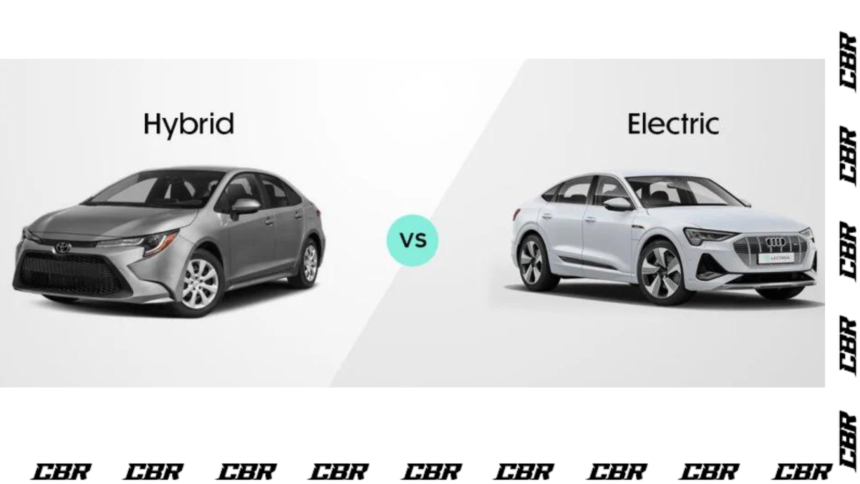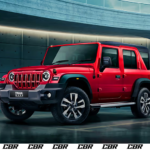As the automobile industry is undergoing a major transformation, the debate between electric vehicles and hybrids has become increasingly important, especially in India.Growing environmental concerns, rising fuel prices and technology developments have led many consumers to consider eco-friendly vehicles.
This blog will explore the differences, benefits, and considerations of electric and hybrid vehicles to help you make the right choice for 2024.
Understanding Electric and Hybrid Cars
Before we start comparing Electric and hybrid cars, here is a table to help you understand what are electric and hybrid vehicles.
| Electric cars | Hybrid Cars |
| These vehicles run entirely on electricity and run on batteries. Tailpipe emissions are minimized, making them an environmentally friendly choice. Popular models in India are the Tata Nexon EV and MG ZS EV. | Hybrid vehicles combine conventional internal engines with electric motors. They can run on gasoline, electricity, or both, giving them greater driving range. Examples of models like the Toyota Camry Hybrid and Honda Accord Hybrid in the Indian market. |
Hybrid Cars vs Electric Cars: Advantages
Both hybrid and electric cars come with their own set of advantages; here is a table to help you understand the different advantages that the cars offer.
| Electric cars Advantages | Hybrid Cars Advantages |
| Zero Emissions: Electric cars produce less exhaust emissions, which helps reduce air pollution.Low running costs: Electricity generally costs less per kilometer than petrol or diesel. This reduces running costs for users.Government incentives: The Indian government offers various incentives to electric vehicle (EV) buyers, including subsidies, tax benefits and road tax exemptionsLow maintenance: Electric cars have fewer moving parts than conventional cars, resulting in lower maintenance costs and less chance of breakdown.Silent operation: Electric cars operate quietly, helping to reduce noise pollution, especially in cities. | Long-range vehicles: Hybrid vehicles combine internal combustion engines with electric motors, offering greater driving range compared to pure electric vehiclesUpdate: You can refuel at any petrol or diesel station, eliminating common concerns with electric vehicles.Fuel efficiency: Hybrids generally offer lower fuel efficiency than conventional petrol-diesel vehicles, resulting in lower costs over time. Regenerative braking: Many hybrids use regenerative braking to recharge their batteries, improving their performance.Lower emissions than conventional cars: While not as emission-friendly as electric cars, hybrids produce far less emissions than conventional cars |
Difference Between Electric Cars vs Hybrid Cars
To better understand which option may suit your needs, here’s a table outlining the primary differences between electric cars and hybrid cars:
| Feature | Electric Cars | Hybrid Cars |
| Power Source | 100% electric battery | Combines electric & fuel |
| Emissions | Zero emissions | Lower emissions than petrol |
| Refueling/Recharging | Electric charging stations | Petrol stations & charging |
| Driving Range | Limited (100-400 km average) | Extended range (500-1000 km) |
| Maintenance | Lower maintenance | Moderate maintenance |
| Government Incentives | Significant in India | Limited incentives |
Considerations While Choosing a Car?
When deciding between electric and hybrid cars, consider the following factors:
- Driving Habits: If you mostly drive short distances, an electric car may suit you best. For longer commutes or frequent travel, a hybrid may be more practical.
- Charging Infrastructure: Evaluate the availability of charging stations in your area. If infrastructure is lacking, a hybrid may be the more convenient option.
- Budget and Incentives: Electric cars can often be more expensive upfront, but government incentives can help offset costs. Hybrids may offer a lower initial investment with fuel savings over time.
- Environmental Impact: If reducing your carbon footprint is a priority, electric cars are the better choice due to zero emissions.
Current Trends in Indian Automobile Market
As in 2024, India is seeing an increase in sales of both electric and hybrid vehicles. The government’s push for cleaner cars has led to significant improvements in charging, especially in urban areas. Many countries are offering incentives to EV buyers, which has led to a surge in interest in electric vehicles.
Meanwhile, hybrids continue to hold their ground, especially among buyers who want to combine traditional gasoline with electric propulsion, Currently those who more manufacturers are offering hybrids, giving consumers more choice than ever before.
Which Car Wins? Electric or Hybrid?
Choosing between an electric car and a hybrid ultimately depends on your personal needs, preferences, and driving habits. Electric cars have zero emissions, lower running costs, and reduced maintenance, making them ideal for environmentally conscious consumers. In other words, electric car types offer greater flexibility, longer range, and lower emissions than conventional vehicles.
As automobile infrastructure evolves in 2024, both electric and hybrid vehicles are valuable products for consumers in India. Look at your priorities be it environment, convenience, or budget, and make the right decision that fits your lifestyle.
FAQs
1. Are electric cars more expensive than hybrid cars?
Yes, electric cars typically have a higher upfront cost, but government incentives and lower running costs can offset this difference over time.
2. What is the average range of electric cars in India?
Most electric cars in India offer an average range of 100-400 km on a full charge, depending on the model and battery size.
3. Can I use a hybrid car for long-distance travel?
Yes, hybrid cars are well-suited for long-distance travel due to their extended range and the ability to refuel at conventional petrol stations.







